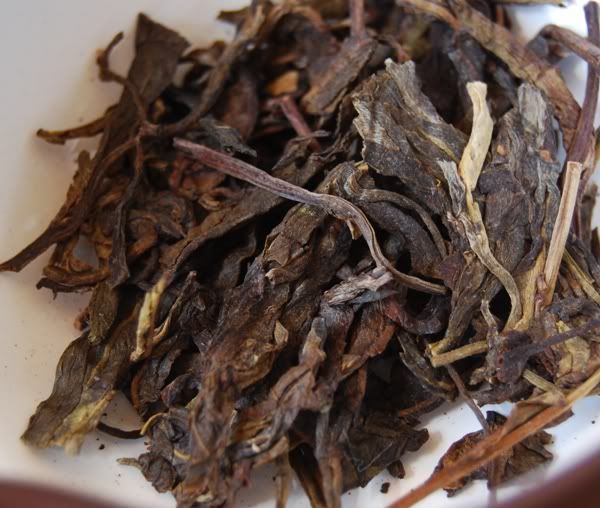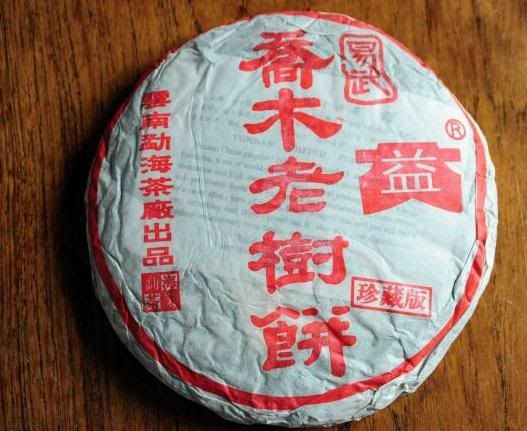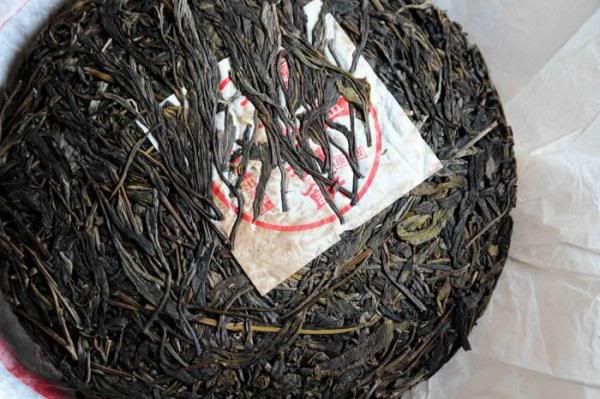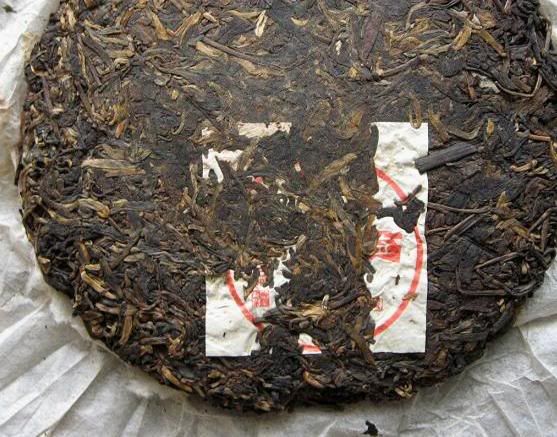Fakes are everywhere in China, a product of the fact that regulation is even more "light touch" than that of certain infamous Western economies. With lack of oversight comes all manner of curious practices - in China, this is exacerbated by the fact that corruption is absolutely systemic. I have a friend who was almost prohibited (via typically off-the-record practices) from taking up her place at a famous Beijing university because her father refused to pay his local party official the prerequisite, under-the-table sum of money.
The father is an engineer - what a hero. Stick it to theman cadre, Mr. Engineer!
In tea, as is often reported, this means that the buyer has to take particular care. With almost every bing under the sun claiming to be qiaomu [arbor] laoshu [old-tree], it comes down to the buyer to determine the good from the average from the bad. Not every cake on earth can be GFLTS+LOYS*.
*good for long-term storage and lovers of young sheng
And so it came to pass that the generous DJC (a.k.a. TacoBell) came across this cake, bought by a friend for approx. 100 of your Federal bucks in Beijing, samples of which he kindly sent out to a few teachums.
The father is an engineer - what a hero. Stick it to the
In tea, as is often reported, this means that the buyer has to take particular care. With almost every bing under the sun claiming to be qiaomu [arbor] laoshu [old-tree], it comes down to the buyer to determine the good from the average from the bad. Not every cake on earth can be GFLTS+LOYS*.
*good for long-term storage and lovers of young sheng
And so it came to pass that the generous DJC (a.k.a. TacoBell) came across this cake, bought by a friend for approx. 100 of your Federal bucks in Beijing, samples of which he kindly sent out to a few teachums.
Chubby! Look at that fat little fellow! It's the kind of tea you want to poke in the belly and make patronising jokes about. The wrapping looks a bit loose, too. I've read some criticism of the printing on the wrapper, but it looks fairly standard for the Dayi Qiaomu Laoshu to my eyes. I could be wrong!
Let's take a look at the leaves:
Let's take a look at the leaves:
Wacky (but appealing!) I'm sure everyone has encountered Dayi before, and so the above will come as a bit of a surprise. Let's take a look at the 2003 version sold by Puerh Shop for comparison ($100 - "Superior grade raw material, famous producer, you got a great tea!"):
...which is much more in line with expectation. Skip4Tea has the same ($75). We can see the chopped leaves, the matted pressing over the neifei, the regulation thickness of the Dayi mould. By comparison, the cake from DJC has charming, glossy maocha.
My sample is shown below - and it looks mighty tasty. I don't know about you, but those leaves are very attractive to me. Unlike Dayi, it has a high proportion of huangpian [yellow flakes] left in the maocha, unseparated from the regular leaves. There are stems aplenty, too. The whole affair looks much more small-scale, and actually seems nicer to me than normal Dayi.
The aroma is a touch damp, which might explain the oily excretions soaking into the neifei.
How's the quality?
My sample is shown below - and it looks mighty tasty. I don't know about you, but those leaves are very attractive to me. Unlike Dayi, it has a high proportion of huangpian [yellow flakes] left in the maocha, unseparated from the regular leaves. There are stems aplenty, too. The whole affair looks much more small-scale, and actually seems nicer to me than normal Dayi.
The aroma is a touch damp, which might explain the oily excretions soaking into the neifei.
How's the quality?

The quality is decent: it pours a straight yellow, which oxidises to orange while I write these notes in my diary, indicating decent activity. The aroma piles on for ages in the wenxiangbei [aroma cup], which is another positive indication of content.
It's a nice little tea: sweet, flavoursome, good texture, decent huigan, and rather energising. "It's alright", says Lei, unimpressed. It doesn't last very long, fading after six or so infusions, indicative of taidicha / plantation tea, but it lacks the roughness associated with bad plantation tea. Its character reminds me of generic Yiwu-area maocha. I liked it!
What could it be? Someone has made a pleasant cake, using decent maocha, and probably tried to beef up its value by buying some Dayi neifei and wrappers. Strip away all the claims to Menghainess, and it's still very enjoyable - but not worth the price of admission, I suspect!
Drinking fun cakes like this can be just as enjoyable (perhaps moreso) than more orthodox productions, and I never turn down the opportunity to try a good fake shengpu. (That said, I wrote about the real 2003 Dayi Qiaomu Laoshu last year, and loved it.)
I don't think I'd be quite so ready to try a fake shupu for fear of dying, but shengpu - absolutely! Thanks again to DJC for the generous sample.
It's a nice little tea: sweet, flavoursome, good texture, decent huigan, and rather energising. "It's alright", says Lei, unimpressed. It doesn't last very long, fading after six or so infusions, indicative of taidicha / plantation tea, but it lacks the roughness associated with bad plantation tea. Its character reminds me of generic Yiwu-area maocha. I liked it!
What could it be? Someone has made a pleasant cake, using decent maocha, and probably tried to beef up its value by buying some Dayi neifei and wrappers. Strip away all the claims to Menghainess, and it's still very enjoyable - but not worth the price of admission, I suspect!
Drinking fun cakes like this can be just as enjoyable (perhaps moreso) than more orthodox productions, and I never turn down the opportunity to try a good fake shengpu. (That said, I wrote about the real 2003 Dayi Qiaomu Laoshu last year, and loved it.)
I don't think I'd be quite so ready to try a fake shupu for fear of dying, but shengpu - absolutely! Thanks again to DJC for the generous sample.




Indeed, the price is probably not in line with quality, but especially for cakes produced prior to 2006 or thereabouts, there are lots of little gems out there. Once you go later, the big boys have locked up all the good stuff and the little ones no longer have access to nice maocha, and the small, no name factory (which made a lot of these fakes as well) quality tend to go down a little
ReplyDeleteYes, it's always fun to do a bit of treasure-hunting. It's a pity that we might never know who is responsible for fun cakes like this, though. It's much nicer than the Mengyang Guoyan-level teas, for example, and would probably sell quite well on its own label.
ReplyDeleteToodlepip,
Hobbes
I thougth the same thing Hobbes. It was indeed a nice fake. As I had said in my comment in teachat. Fakes can be tasty!" :D
ReplyDeleteI agree with the gentleman in the strange fabric hat :)
ReplyDeleteToodlepip,
Hobbes